Europe spoils WEF party in Davos
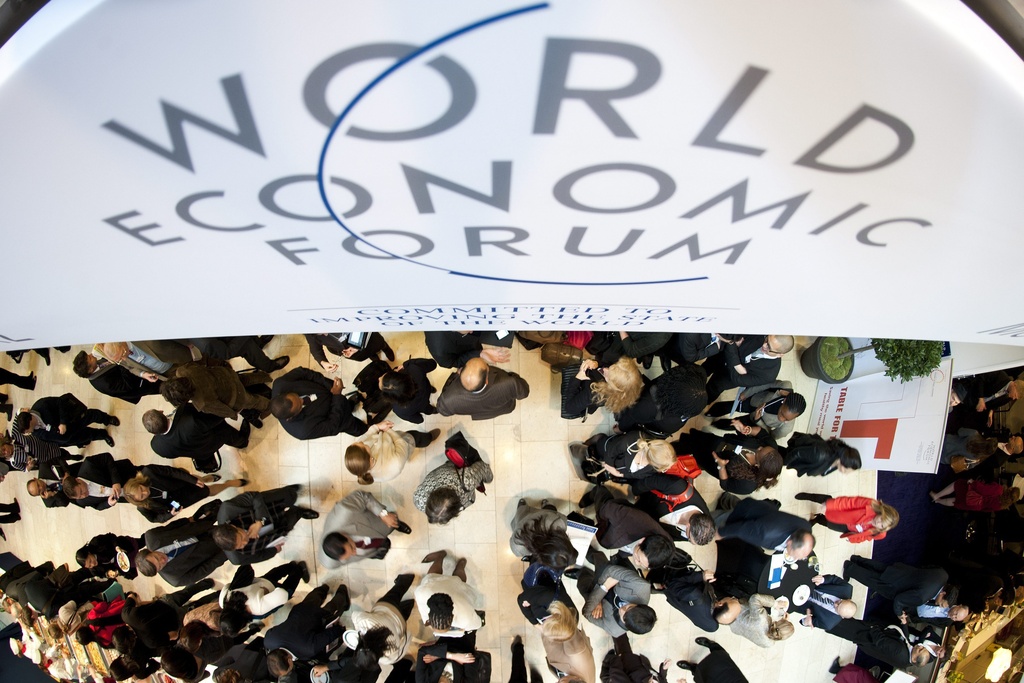
The continuing European debt crisis dominated debate in Davos and cast a huge cloud over the World Economic Forum’s (WEF) showpiece event.
German Chancellor Angela Merkel set the tone early on by reiterating a strategy of enforcing austerity on Greece and other debt laden eurozone countries in favour of increasing a bailout fund.
Merkel’s keynote speech on the opening day urging “more Europe” was greeted with scepticism by the international array of leading business people, politicians, academics and civil society representatives.
If the WEF conference was a weather vane pointing to how global leaders interact in the outside world, the overriding impression was one of Germany against the rest of the world on how to solve Europe’s problems.
The televised addresses and over-subscribed discussion panels that were on public view represented just the tip of the iceberg of activity in Davos.
Are banks safer?
Behind the scenes Greek government officials were busy meeting with private sector creditors in an effort to agree this weekend how much of a haircut (writedown on the value of their investment) bondholders could accept.
Heads of state and finance ministers were also busy in back corridors trying to find a route out of the current political impasse on Europe. The results of those meetings will play out in the coming weeks and months.
An area that has seen a lot more progress in the last 12 months is banking regulation, even though the various steps taken by different jurisdictions to contain the threat of another financial crisis appear disjointed and fragmented.
Economist Nouriel Roubini pointed out that the post-crisis consolidation of the banking sector had created even bigger leviathans, such as Bank of America/Merrill Lynch. The too big to fail problems had become an “even bigger to fail” situation, he argued.
At an earlier session, just ten members out of a 140-strong audience agreed that the financial system is a safer place than a year ago. The straw poll showed far more hands raised to show they thought the system is now more dangerous.
Progress blocked
Roubini was one of many delegates to point out that economic growth, employment and the search for greater income equality were all being held back by the unresolved European debt and banking regulation issues.
From an Asian perspective, Japanese Prime Minister Yoshihiko Noda labelled the European debt crisis as the number one risk to the global economy.
In fact, many people in Davos were wondering aloud if Europe is in the midst of suffering a Japanese-style lost decade.
US business executives in Davos were in an upbeat mood following the Federal Reserve’s promise to keep interest rates low, if at all possible, for the next two years.
Some reasonably positive economic data coming out of the US had these executives all saying the same thing: “Europe is the only weak link in the chain that leads to economic recovery. If Europe could only sort its problems out, confidence would be restored to the markets and get the whole system could work properly again.”
Tinker, not tear down
Only then could more jobs be created, helping to haul the 1.1 billion unemployed or impoverished people in the world (International Labour Organization estimate) out of their rut.
But such sentiments seemed to miss the whole point of the “Great Transformation” theme of this year’s Forum. Before delegates started arriving in Davos, WEF founder Klaus Schwab was briefing journalists that the current model of capitalism “no longer fits the world”.
Occupy Davos demonstrators camped in igloos on the edge of town also tried to drive the same point home, albeit using different tactics.
The challenge put to Davos participants this year was to address ways of revamping capitalism, globalisation and established leadership models to fit a rapidly changing world.
Despite objections from trade unionists and civil rights groups, the overwhelming reaction was that these systems did not need tearing down and rebuilding from scratch. Most participants believed that capitalism just needs a bit of a tweak to start functioning properly again.
Maybe business executives in the West would like to borrow from Morocco’s trick of reforming just enough to avoid a full-blown revolution last year.
“The reforming movement was warm enough to force changes but not warm enough to burn what we already had,” new Moroccan Prime Minister Abdelilah Benkirane told Davos.
The WEF was started by Klaus Schwab in 1971 at Davos, initially under the name “European Management Symposium”.
It was designed to connect European business leaders to their counterparts in the United States to find ways of boosting connections and solving problems.
It is a non-profit organisation with headquarters in Geneva and is funded by the varying subscription fees of its members.
The forum took its current name in 1987 as it broadened its horizons to provide a platform for finding solutions to international disputes. WEF claims to have helped calm disputes between Turkey and Greece, North and South Korea, East and West Germany and in South Africa during the apartheid regime.
WEF conducts detailed global and country specific reports and conducts other research for its members. It also hosts a number of annual meetings – the flagship being Davos at the beginning of each year.
In 2002, this meeting was moved to New York for a one-off change of venue to support the city following the 9/11 terrorist attacks of the previous year.
Davos has attracted a number of big names in the world of business, academia, politics and show business. These include: Nelson Mandela, Bill Clinton, Tony Blair, Bono, Angela Merkel, Bill Gates and Sharon Stone.
As the forum grew in size and status in the 1990s, it attracted rising criticism from anti-globalisation groups, complaining of elitism and self-interest among participants.
This year’s meeting saw 2,600 leaders in politics, business and civil society gather in Davos.

In compliance with the JTI standards
More: SWI swissinfo.ch certified by the Journalism Trust Initiative


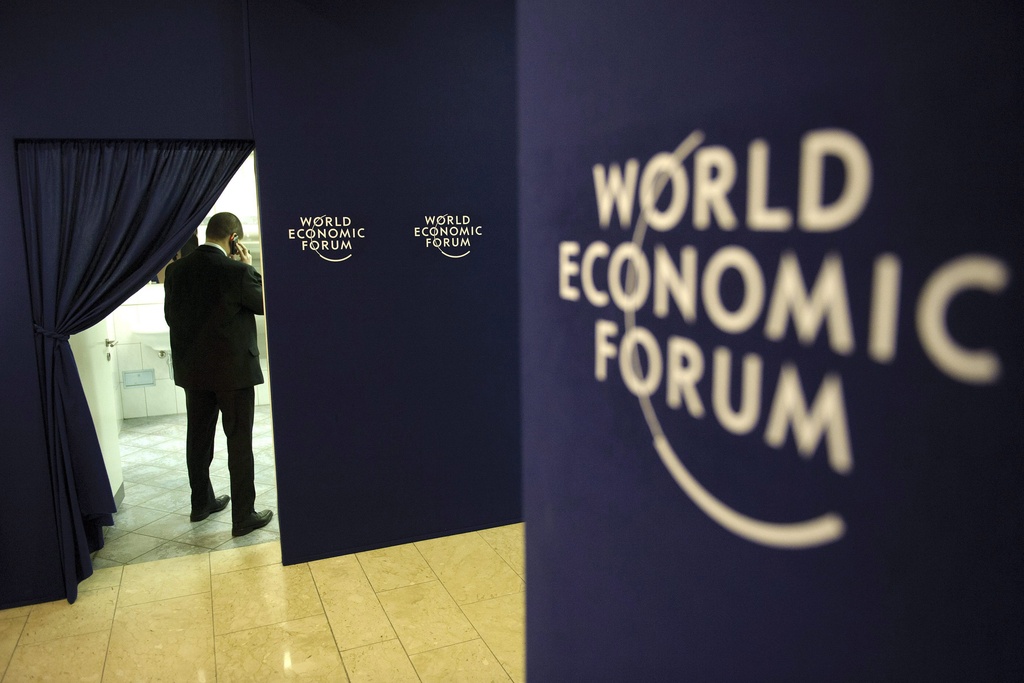
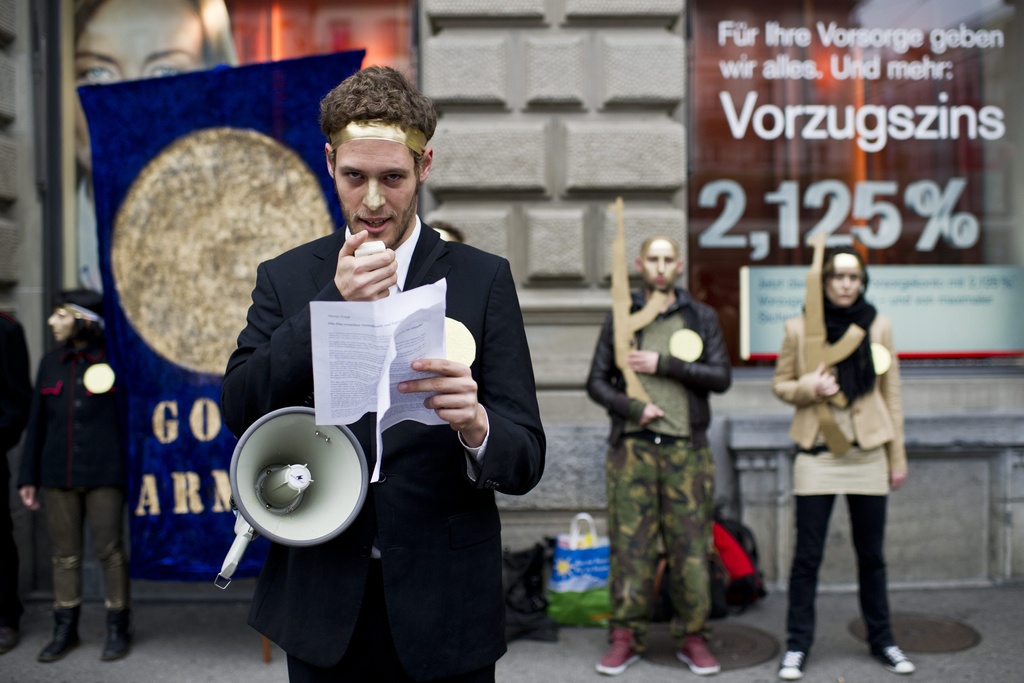
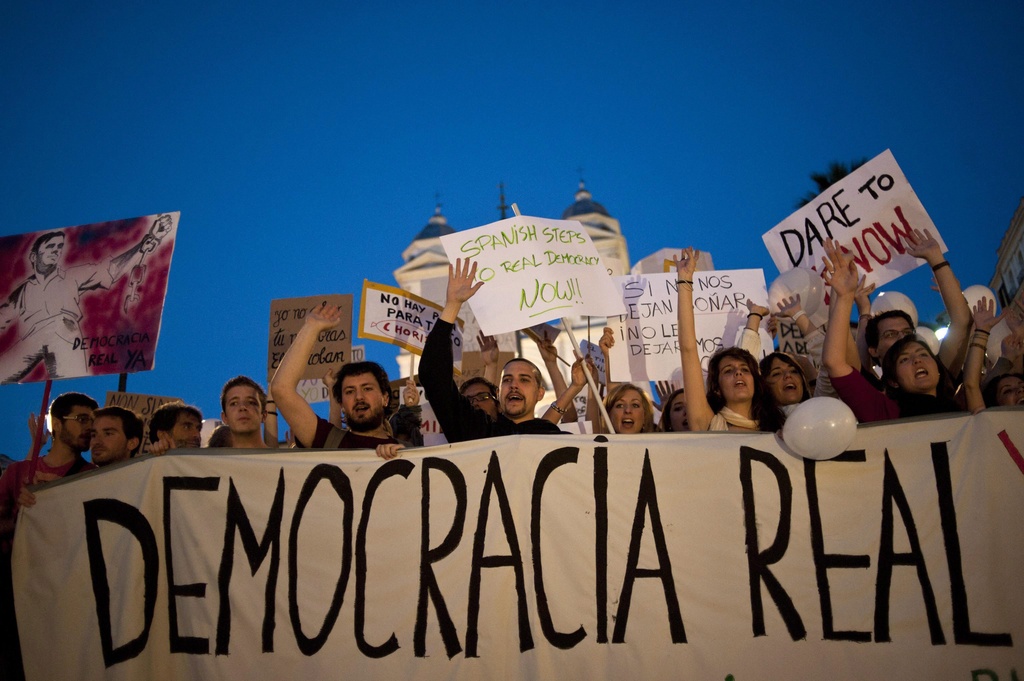
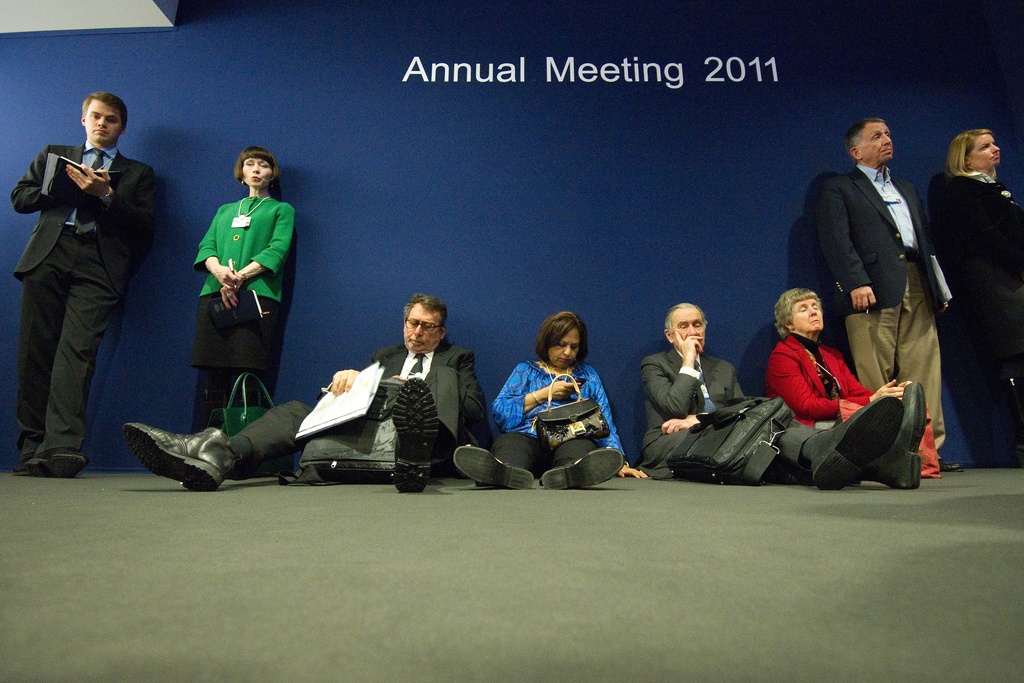
You can find an overview of ongoing debates with our journalists here. Please join us!
If you want to start a conversation about a topic raised in this article or want to report factual errors, email us at english@swissinfo.ch.